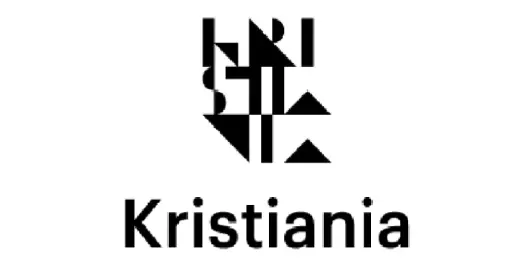Ledig stilling på Universitetet i Oslo
Blindern og Urbygningen (Foto: Wikimedia og Colourbox)
PhD Research Fellow in Social Anthropology
Deadline: 20.06.2019
Job description
Universitetet i Oslo
The University of Oslo is Norway’s oldest and highest ranked educational and research institution, with 28 000 students and 7000 employees. With its broad range of academic disciplines and internationally recognised research communities, UiO is an important contributor to society.
The Department of Social Anthropology is part of the Faculty of Social Sciences. Since its establishment in 1964, the Department has been a leading anthropological research and teaching environment internationally. It is one of the largest university departments for social anthropology in Europe and the largest in the Nordic countries, offering a broad and creative work environment. Approximately 400 students are currently enrolled in the Bachelor and Master programmes at the Department. The Faculty of Social Sciences offers a PhD program, with 330 students currently enrolled. Of these, about thirty are currently following the study track in Social Anthropology.
Applications are invited for one Research Fellowship as PhD Candidate in Social Anthropology to be based at the Department of Social Anthropology, University of Oslo.
The position will be part of the research project “Global trout: investigating environmental change through more-than human world systems”, led by Professor Knut G. Nustad (University of Oslo) and Associate Professor Heather Swanson (Aarhus University), and funded by the Research Council of Norway.
The project
How can we better bring the spatial and scalar insights of the humanities to bear on questions of global environmental change? This original basic research project seeks to address the above question by exploring how scholarship on scale in anthropology can help us rethink the 'global' of global environmental problems through ethnographic research. It takes the widespread introduction of rainbow trout as its case. Theoretically, the project´s approach expands the tools of world systems analysis by bringing them into dialogue with multispecies ethnography. In doing so, it develops a new mode of collaborative ethnography for studying global connections. For a full description, see the project homepage.
More about the position
The candidate will, together with the supervisors, be responsible for the Great Britain part of the project. Research should focus on how trout introductions have changed Euro-American ‘metropole’ watersheds and political formations as fish are moved among and within so-called metropoles as well as between metropole and colonies. One of the key goals of this sub-project is to upend the notion that ‘core’ trout areas, like Britain, are only trout exporters – places that remain unchanged by trout globalization – by documenting how colonial relations have reconfigured British trout worlds.
The proposed project should commence in September 2019.
The position is either for a period of three years (with no compulsory work), or for a period of four years including compulsory work (primarily teaching). A decision regarding the duration of employment will be made by the Department Board upon appointment to the position and in light of the Department's teaching needs.
The research fellow must take part in the Faculty’s approved PhD program and is expected to complete the project within the set fellowship period. The main purpose of the fellowship is research training leading to the successful completion of a PhD degree.
The applicant must, in collaboration with her/his supervisor, within three months after employment, have worked out a complete project description to be attached to the application for admission to the doctoral program. For more information, please see our web site.
Requirements
- Applicants should hold a 2-year Master’s degree or equivalent, in social anthropology; other degrees in related disciplines can be considered.
- Knowledge of and research experience within one or more of the following areas will be given weight: Colonial histories, globalization, multispecies anthropology, conservation projects, introduced species, trout and sports fishing and regional expertize.
- Excellent academic English language skills are required, and enthusiasm for group-work is a must. The fellow will be expected to conduct approximately 12 months of ethnographic fieldwork and is strongly encouraged to spend 3 months abroad as a visitor at another academic institution. The fellow is expected to be in residence in Oslo during the remainder of the position.
In assessing the applications, special emphasis will be placed on the project description, as well as the applicant's academic and personal prerequisites to carry out the project. A good match between the candidate's proposal and the project’s planned activities and areas of focus is a main selection criterion, along with the quality of the proposal and the qualifications of the candidate.
We offer
- salary NOK 449 400 – 505 800 per annum
- attractive welfare benefits and a generous pension agreement, in addition to Oslo’s family-friendly environment with its rich opportunities for culture and outdoor activities
How to apply
The application must include
- cover letter (statement of motivation and research interests)
- CV (summarizing education, positions and academic work)
- preliminary project description including the theme of the project, issues to be examined, theoretical and methodological approachand a progress plan (max. 4 pages, excluding references)
- copies of educational certificates (academic transcripts only)
- list of publications and academic work (if applicable)
- list of reference persons: 2-3 references (name, relation to candidate, e-mail and phone number)
The application with attachments must be delivered in our electronic recruiting system, please follow the link “Apply for this job”. Foreign applicants are advised to attach an explanation of their University's grading system. Please note that all documents should be in English (or a Scandinavian language).
When evaluating the application, emphasis will be given to the eventuelt “project description” and the applicant’s academic and personal prerequisites to carry out the project. Applicants may be called in for an interview.
Formal regulations
Please see the guidelines and regulations for appointments to Research Fellowships at the University of Oslo.
No one can be appointed for more than one PhD Research Fellowship period at the University of Oslo.
According to the Norwegian Freedom and Information Act (Offentleglova) information about the applicant may be included in the public applicant list, also in cases where the applicant has requested non-disclosure.
The appointment may be shortened/given a more limited scope within the framework of the applicable guidelines on account of any previous employment in academic positions.
The University of Oslo has an agreement for all employees, aiming to secure rights to research results etc.
Contact information
Apply for this job















